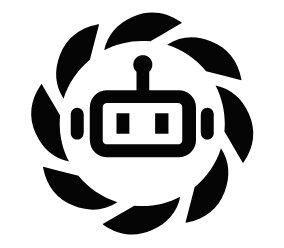As artificial intelligence (AI) continues to advance, its ethical implications become increasingly important. Among the various applications of AI, ChatGPT—a powerful language processing model developed by OpenAI—raises significant questions about its impact on society. Understanding the ethical considerations surrounding ChatGPT technology is crucial for ensuring responsible usage and mitigating potential risks.
Understanding ChatGPT Technology
ChatGPT operates on a sophisticated neural network architecture designed to understand and generate human-like text. It has been trained on vast amounts of data, allowing it to engage in conversations, answer questions, and assist in various tasks. Its versatility has made it a valuable tool for businesses, educators, and individuals, but this power comes with ethical responsibilities.
Misinformation and Accuracy
The Challenge of Truthfulness
One of the most pressing ethical concerns regarding ChatGPT is its potential to generate misinformation. While the AI can produce coherent and contextually relevant responses, it is not inherently capable of distinguishing between accurate and false information. This raises concerns about the spread of misleading content, particularly in sensitive areas like health, politics, and finance.
Mitigating Misinformation
To combat misinformation, developers and users must implement strategies for verification and fact-checking. This could involve creating systems that prompt users to cross-reference information or develop more sophisticated filtering mechanisms within the AI itself. Promoting digital literacy among users is also vital; individuals must learn to critically assess the information provided by AI systems.
Bias and Fairness
The Issue of Bias
Another significant ethical implication of ChatGPT technology is bias. AI models are trained on datasets that may contain historical biases, leading to outputs that perpetuate stereotypes or discrimination. For example, if the training data reflects societal prejudices, the AI might generate biased responses or reinforce harmful narratives.
Addressing Bias
Addressing bias in AI requires a multifaceted approach. Developers should strive for diverse training datasets that better represent different demographics and perspectives. Ongoing audits and evaluations of AI outputs can help identify and rectify biases. Additionally, transparency in how AI systems are trained and the datasets used is essential for fostering accountability.
Privacy and Data Security
Concerns Over User Data
The interaction between users and ChatGPT involves the collection and processing of data, raising privacy concerns. Users often share sensitive information, and there is a risk of data misuse or breaches. Ensuring the privacy and security of user data is a paramount ethical consideration.
Safeguarding Privacy
To safeguard privacy, organizations must establish clear data policies that outline how user information is collected, stored, and used. Implementing encryption and anonymization techniques can protect sensitive data from unauthorized access. Furthermore, users should be informed about their data rights and how their information will be handled.
Accountability and Transparency
Who is Responsible?
As AI systems like ChatGPT become more integrated into decision-making processes, the question of accountability becomes increasingly complex. If an AI generates harmful or misleading content, who is responsible? The developers, users, or the AI itself? Establishing clear lines of accountability is crucial for ethical AI deployment.
Promoting Transparency
Transparency in AI development and usage is essential for building trust. Organizations should disclose how their AI models operate, including the data sources and algorithms used. Providing users with insights into the decision-making processes of AI can help demystify the technology and foster responsible use.
Ethical Use Cases
Positive Applications
Despite the ethical challenges, ChatGPT has the potential to be used for positive social impact. It can assist in mental health support, provide educational resources, and facilitate communication across language barriers. However, the ethical implications of these applications must be carefully considered to ensure they are implemented responsibly.
Guidelines for Ethical Use
Establishing guidelines for the ethical use of ChatGPT can help mitigate risks. Organizations should develop frameworks that prioritize user welfare, promote fairness, and ensure transparency. Engaging with ethicists, technologists, and community stakeholders can create a comprehensive approach to ethical AI deployment.
The Future of Ethics in AI
Ongoing Research and Development
As AI technology evolves, so too will the ethical considerations surrounding it. Ongoing research into the implications of AI, including bias, privacy, and accountability, is essential for keeping pace with advancements. Collaborative efforts between academia, industry, and regulatory bodies will be vital for addressing emerging ethical challenges.
The Role of Regulation
Governments and regulatory bodies play a crucial role in shaping the ethical landscape of AI. Establishing clear regulations that govern AI development and deployment can help ensure responsible practices. Engaging with stakeholders from various sectors can lead to more comprehensive and effective regulatory frameworks.
Conclusion
The ethical implications of ChatGPT technology are complex and multifaceted. While the potential benefits are significant, they must be balanced against the challenges of misinformation, bias, privacy, and accountability. By fostering transparency, promoting responsible usage, and engaging in ongoing dialogue about ethics in AI, society can navigate the evolving landscape of artificial intelligence more effectively. The future of AI hinges on our ability to address these ethical considerations, ensuring that technology serves humanity in a just and equitable manner.

